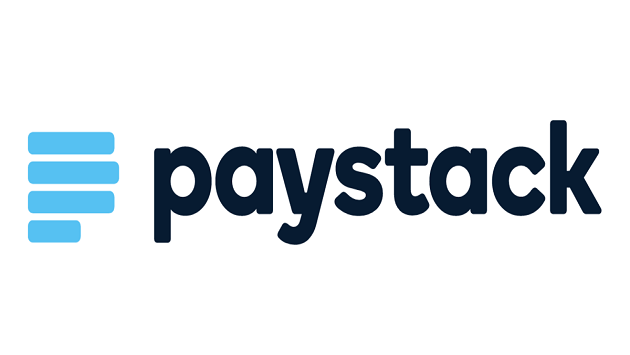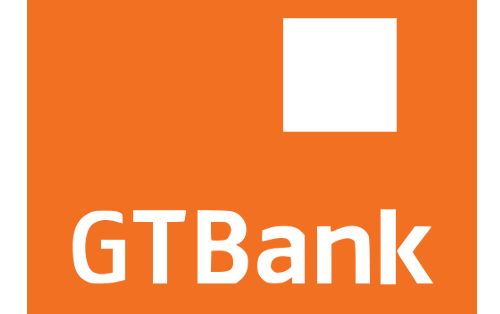E-Financial
ATMs @ Risk as Banks Miss Microsoft Windows Deadline
Nigerians may experience glitches at automated teller machines (ATMs) as most banks in the country are yet to migrate to Windows 8 Operating System (OS) after Microsoft Corporation retired Windows XP on April 8.
The Windows 8 is a personal computer OS developed by Microsoft as part of Windows new technology family of OS.
The application has introduced major changes to the operating system’s platform and user interface to improve its user experience on tablets.
This became exigent as Windows was now competing with mobile operating systems, including Android and iOS.
The Nation newspaper quoted Chuks Iku, chairman, Committee of e-Banking Industry Heads (CeBIH), as saying that Microsoft Nigeria had directed banks to migrate to the improved platform, which, he said would allow for enhanced banking benefits and security.
Iku who spoke at a briefing yesterday in Lagos , said Microsoft is the owner of the licence and banks are taking steps to ensure they comply.
“CeBIH has engaged Microsoft Nigeria to fashion out means of creating a uniform approach to compliance with the need for migration of ATM operating system from Windows XP to Windows Embedded 8.1 which is the new operating system designed to run on ATMs. This step ensured security of ATM transactions and helped to prevent attacks on ATM terminals,” he said.
Iku who is also the head of E-Business at Skye Bank, said the group is also looking at what happens next if the banks fail to comply, including extension of the deadline.
The Nation newspaper reported that CeBIH comprises all heads of e-business/ e-banking/ e – channels/ card services of all banks in Nigeria, aimed at promoting electronic banking services in line with global best practices.
Iku said the group is working on getting more banks to migrate their Windows XP to the new version adding that different banks have their different ways of approaching the challenge.
The banker said despite failure to comply by some lenders, ATMs remain secured and safe for transactions. He however said non-compliant ATMs might not be able to carry out improved service delivery.
“By upgrading, we are taken to a higher version, but that does not mean that the version that you have will not run. The ATMs are still working, and are not going to go down. “But the migration will only enhance the features of the ATMs. There is really no cause for alarm, the important thing is that we should do it quickly to ensure that our ATMs are in top performing levels,” he advised.
Benedict Anyalenkeya, group head, E-Business, Unity Bank, explained that not all ATMs were affected. He said some of the ATMs came with Windows 8 by default, adding that the entire industry is not having backlog of ATMs migration.
Anyalenkeya said the ATMs that were installed in the last one or two years would have been upgraded except for the old ones. He said the compliance level depends on each lender and assured that there is no cause for alarm.
He said the CeBIH has agreed with the banks to consult with Microsoft on a much cheaper way of doing it. “Each individual bank still has the responsibility of upgrading its own software. I cannot give you a timeline on compliance but it will be completed within a very short time,” he said.
Ernest Obi, head, E-Business & Channels, Keystone Bank, said banks are simply trying to buy time. He said Microsoft is also aware that it lacks the capacity to get all banks migrated to the Windows 8 adding that the CeBIH is helping lenders to buy time and solve the migration challenge.
But Kabelo Makwane, general manager Microsoft Nigeria, told The Nation that the company has the capacity to migrate all the banks that are willing and ready for the project. He said Microsoft has over 2,500 partners involved in the migration process, one of which is Zinox Technologies.
He however said several banks have identified non-migration to the new technology as a priority for them and are taking steps to address the challenge.
He said that non-migration to the Windows 8 can open the banks up for potential security vulnerability and threats.
Makwane said: “We have the capacity to migrate all the banks to the Windows 8. We have no capacity challenge at all and have been advising the banks on the need to migrate to the new technology,” he said.
He explained that Microsoft will keep supporting the banks to achieve compliance.
E-Financial
CBN Slams ₦250m Fine on Paystack Over Zap Wallet Operations

The Central Bank of Nigeria (CBN) has slammed a ₦250 million fine on Paystack for operating Zap, its peer-to-peer payment app, as a wallet in breach of its regulatory approval.

The apex bank flagged Zap as a deposit-taking product, a function reserved exclusively for institutions with microfinance or banking licences, according to a report by TechCabal.
Launched in March, Zap allows users to send and receive money, positioning itself as a consumer-facing digital wallet.
However, Paystack only holds a switching and processing licence, which permits it to facilitate transactions but not to hold customer funds. This regulatory limitation is at the heart of the CBN’s sanction, sources familiar with the matter said.
“Paystack is working closely with the regulator as they further review Zap, and out of respect for the process, we won’t be making any public comments at this time,” a company spokesperson said.
The penalty comes amid a legal dispute between Paystack and Zap Africa, a Nigerian crypto startup, which has accused the fintech of trademark infringement.
In Nigeria’s highly regulated financial services space, digital wallets are considered deposit-taking entities, and offering such services without the requisite licence raises compliance concerns for the regulator.
Although Zap reportedly does not directly hold customer funds, it operates in partnership with Titan Trust Bank, which is authorised to accept deposits.
This is Paystack’s most significant publicly disclosed regulatory sanction since it received CBN approval in 2016. It reveals the growing scrutiny facing fintech firms as they transition from enterprise-focused offerings to consumer-facing financial services.
E-Financial
Gtb Increases SMS Transaction Alert Fee Today

Guaranty Trust Bank (GTBank) has announced an increase in its SMS transaction alert fee from ₦4 to ₦6 per message, effective May 1, 2025. The bank cited a recent rise in telecommunication tariffs by service providers as the reason for the adjustment.

In a message to customers, GTBank explained that SMS alerts sent to international phone numbers would attract higher charges due to varying telecom costs. The bank emphasized the importance of transaction alerts in helping customers monitor account activity
Customers who no longer wish to receive SMS alerts have the option to update their alert preferences by submitting a form available on the bank’s website via email. This move allows customers to manage their notification preferences according to their needs.
The fee increase affects GTBank customers, who will now be charged ₦6 per SMS alert for transactions
E-Financial
Panic as Hackers Allegedly Steal N9.3Bn Customers’ Fund from Union Bank

Union Bank of Nigeria Plc is facing a major financial scandal after hackers reportedly siphoned N9.3 billion from multiple customer accounts.

The breach, which occurred on March 23, 2025, has led to an urgent legal battle as the bank seeks to freeze accounts suspected of receiving the stolen funds.
Court filings reveal that the cybercriminals exploited a critical system glitch, discreetly transferring the money in small amounts across 54 financial institutions to evade detection.
Oluwasegun Falola, Union Bank’s Head of E-Fraud Investigations, confirmed that tracking the transactions has been challenging due to their fragmented nature.
Acting swiftly, the bank filed a lawsuit (FHC/L/CS/629/2025) at the Federal High Court in Lagos, requesting an emergency order to halt further withdrawals. On April 2, 2025, the bank’s legal team, led by A. Adedoyin-Adeniyi, informed the court that the stolen funds were still being actively moved—suggesting an ongoing laundering operation.
In response, Justice Deinde Dipeolu granted a Post No Debit (PND) order, freezing all implicated accounts pending further investigation.
This crisis comes just 15 months after the Central Bank of Nigeria (CBN) dissolved Union Bank’s former board over governance failures. Under the leadership of MD Yetunde Oni, the bank now faces intense scrutiny as customers demand accountability.

 News2 days ago
News2 days agoNBC Loses Appeal as Tribunal Upholds ₦190m Fine for Misleading Packaging

 Telecom2 days ago
Telecom2 days agoMTN’s Talent Hunt Returns: A Stage for Nigeria’s Next Creative Stars

 Telecom1 day ago
Telecom1 day agoEmerging Technologies, Cybersecurity, Others Form Key Focus of NCA 2003 Review

 E-Financial2 days ago
E-Financial2 days agoCBN Urges Banks to Source FX for PAPSS Settlement Through NFEM

 News2 days ago
News2 days agoUS Identifies Corruption as Key Barrier to Trade and Investment in Nigeria

 General News2 days ago
General News2 days agoWanted CBEX Promoter Surrenders to EFCC Amid $1 Billion Fraud Probe

 E-Business1 day ago
E-Business1 day agoCAC to Prosecute Business Owners Operating Without Registration

 Telecom1 day ago
Telecom1 day agoMTN Nigeria Reports N1 Trillion Revenue




























